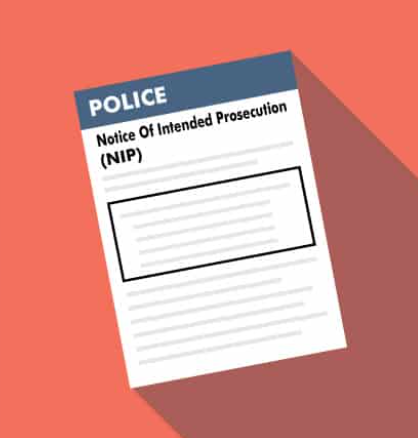

Section 172 Road Traffic Act
Receiving a section 172 notice through your letterbox can be confusing and intimidating to deal with. In the following article the specialist motoring solicitors at Parnell and Peel aim to inform you of your options and the information necessary in order to deal with the matter . For nearly 2 decades we have specialised in motoring offences with a long track record and an exemplary legal team contact us now for a free consultation to see where you stand in regards to your case .
What is section 172 of the Road Traffic Act
Section 172 of the Road Traffic Act states there is a duty on the registered keeper of a vehicle to provide information as to the identity of the driver as they may be required to give by or on behalf of a chief officer of police where the driver of a vehicle is alleged to be guilty of an offence under Road Traffic Act. If the police are informed of a driving offence a section 172 notice will be sent to the address of the registered keeper of the vehicle failure to fulfil the request of information made by the officer may result in further penalties and consequences .
What offences can lead to a section 172 notice
Most motoring offences can lead to a section 172 notice some of the common ones we see are listed below :
Speeding
Running a Red Light
Careless or Dangerous Driving
Driving Without Insurance
Driving Under the Influence
Mobile Phone Use While Driving
Driving Without a Valid Licence
Driving Without Due Care and Attention
Leaving the Scene of an Accident
It is important to note that this is not an extensive list and other motoring offences may lead to a section 172 notice .
How to complete a section 172 notice
If you have received a section 172 notice as the registered keeper of a vehicle the process of completing the document is fairly straightforward the notice will ask for your details and questions in regards to the alleged offence committed . In order to avoid further penalties and consequences in the future it is advisable to complete the form with full transparency as failure to do so may result in an offence .
Once the form has been completed you have 28 days to return the form to the police or you may be charged with failure to provide driver details .
What to do if you do not know who was driving
If you don't know who was driving at the time of the offence for various reasons such as :
Having multiple drivers on your insurance policy
OR
The alleged offence being committed prior to you purchasing the car
You must state this within the section 172 notice providing false information in order to protect a friend may result in an offence of perverting the course of justice which can result in a higher severity of consequences and penalties .
Penalties for failing to complete a section 172 notice correctly or within 28 days
If you have failed to complete the section 172 notice correctly or not completed it within 28 days you may be subject to the following penalties :
6 penalty points
Up to £1000 fine
A disqualification from driving
For more serious offences such as multiple offences committed and failure of the section 172 this could result in more severe consequences shown below :
Level Of Seriousness | Starting Point | Range | Disqualification | Penalty Points |
|---|---|---|---|---|
| Category 1 | High level community order | Low level community order – 26 weeks’ custody | 6 – 12 months | 9 – 10 points |
| Category 2 | Band C Fine | Band B fine – Medium level community order | Up to 6 months | 7 – 8 points |
| Category 3 | Band B fine | Band A fine – Band C fine | None | 5 – 6 points |
The penalties shown above are determined by the S172 magistrates sentencing guidelines and the range and severity of penalties imposed is under the discretion of the magistrates . As well as the nature of the offence other factors will also be taken into account such as mitigating and aggravating factors surrounding the offence .
Aggravating factors may include :
Previous Convictions
Whether the offender was on bail at the time
Little or no attempt made to comply with duty
Evidence of bad driving
Failure to comply with current court orders
Offence committed on licence or post sentence supervision
Mitigating factors may include :
No previous convictions or no relevant/recent convictions
No previous convictions or no relevant/recent convictions
Remorse
Good character and/or exemplary conduct
Reasonably believed identity known
Genuine fear of retribution
Significant attempt made to comply with duty
Serious medical condition requiring urgent, intensive or long-term treatment
Mental disorder or learning disability
Age and/or lack of maturity
Sole or primary carer for dependent relatives
Our Defences
When it comes to defending an offence of failing to provide driver details under section 172 we employ the use of 2 main defences :
Not reasonably practicable to provide details.
OR
Reasonable Diligence
Reasonable Diligence
“Reasonable Diligence ” refers to the care and attentiveness used by the motorist to ascertain who was driving at the time of the alleged offence .
Section 172 of the RTA states that the registered keeper of the vehicle will not be guilty of the offence if the individual does not know who the driver was and tried with due diligence to ascertain the identity of the driver but couldn't do so . There is no statutory definition on what constitutes reasonable diligence and therefore that decision is left in the hands of the magistrates .
The external factors surrounding the case will also be judged in order to decide whether the motorist has or hasn't tried to ascertain the identity of the driver to the best of their ability . At Parnell and Peel we have put forward numerous successful reasonable diligence defences for our clients if you believe you have grounds to put forward a reasonable diligence defence contact us now at 0330 341 1690.
Reasonably Practicable
The reasonably practicable defence applies where it was not reasonably practicable to provide details within the 28 days due to various reasons . This defence can apply in terms of postal issues of not receiving the notice or receiving the section 172 notice after the 28 days . As of recently postal strikes and delayed letters are common and if proven in front of the magistrates the reasonable practicable defence is extremely successful .
If you think you have grounds for a reasonable practicable defence get in touch now and speak to one of our specialist motoring solicitors to see where you stand in your case .
Speak to a specialist
At Parnell and Peel we are a specialist motoring firm dealing solely with motoring offences for over 16 years . With an expert team of legal representatives and associates we can help you obtain the best possible outcome in your case . Contact us now at 0330 341 1690.
"I was charged with Drink Driving, and the case looked hopeless, Abdul reassured me, and the CPS offered no Evidence. Abdul is certainly an Expert in Drink Driving and his handling of the case was outstanding"
"I was charged with drink driving and my case looked hopeless. There was witness evidence and forensic evidence. From my first meeting with Abdul he reassured me that we could win the case. Abdul was fantastic and the end result is that I am a happy man as I have kept my driving licence and my job."
"I would like to thank Abdul for his support and professionalism through a difficult phase in our lives.The outcome was the best of what we could have hoped for and would recommend your service to others if needed."
"After an extremely stressful 4 months I am delighted with the outcome . Abdul represented me through-out and was always there to support me when the panic took over and delivered what was discussed at our very first meeting. I cannot thank Abdul enough for all his hard work and helping me keep my driving licence. , I wouldn’t hesitate recommending them to friends and family. Many Thanks."
"I am grateful to Abdul and team. I have avoided conviction for failure to provide despite what seemed to be overwhelming case against me. I am absolutely delighted as my driving licence was everything and I stood on the verge of losing everything. Keep up the good work ."

